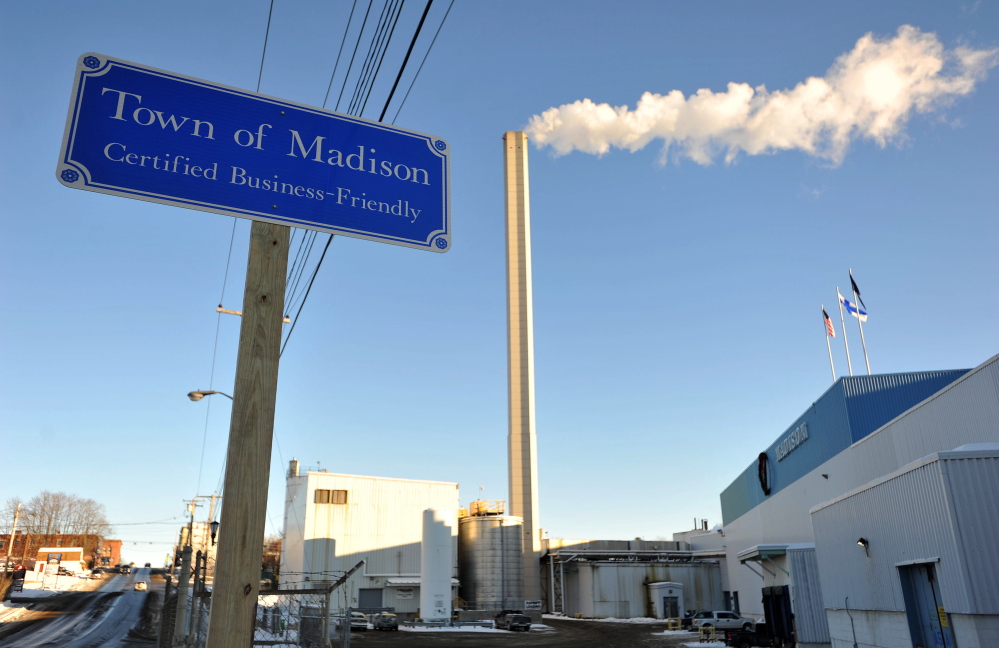New ideas and strong public-private partnerships are critical in determining the next life of Maine’s pulp and paper industry. Unfortunately, Gov. LePage has time for neither.
Representatives of eight federal agencies joined local officials and statewide business leaders last week for a tour of communities affected by changes in the industry. The purpose was to find a way forward for a sector that despite its challenges still employs thousands of Mainers, and still displays a lot of potential.
The effort will produce recommendations for how federal expertise can help Maine capitalize on the new products and processes that are moving the industry beyond the manufacturing of paper. It should be an exciting prospect for anyone wondering what’s next after the closure of five paper mills in two years.
LePage, though, has pulled all state involvement in the effort.
It may be a negotiating tactic over an ongoing tariff dispute, a sign of his continued antipathy toward the federal government, or an indication he has no patience for solutions other than his own. But all he’s really doing is hurting communities that need the forest products industry to thrive.
CLOSURE PROMPTS ACTION
The federal agencies were called in after Madison Paper Industries announced in March that it would close, costing the state more than 200 jobs.
The Department of Commerce offered the services of an economic development assessment team, which provide the resources of multiple federal agencies to areas in trouble. Teams have previously been deployed to help after the collapse of the New England fisheries and for the aftermath of the Deepwater Horizon oil spill in the Gulf of Mexico, among other places and industries in peril.
The team arrived last Wednesday for a three-day tour that included stops in Bucksport, Dover-Foxcroft, Millinocket, Old Town and Skowhegan alongside the congressional delegation, business development and industry leaders, and local officials. The co-chairs of the team are local – the directors of the Maine Development Foundation and the Maine Forest Products Council.
The team will formulate a long-term economic plan with the help of nearly $8 million in federal grants. The funds will help grow an airplane manufacturing company, facilitate the move of a paper company’s research and development facility from Canada to Orono, support University of Maine research into making jet fuel from biomass, and expand the precision machining technology center at Central Maine Community College.
It is those kinds of investments that are the building blocks for a new economy in rural Maine. But to LePage, they represent “another failed stimulus package” that provides “false hope,” as he wrote in a July 5 letter to the Department of Commerce.
NEW IDEAS NEEDED
Instead, LePage said Maine has to reduce taxes and energy costs, and improve its forest management. He also asked for the federal government to remove tariffs placed on Canadian paper companies that employ Maine workers. Until those challenges are acknowledged, he said, his administration won’t be involved.
LePage’s single-minded focus on energy and taxes misses important changes in how and where paper is manufactured. They are certainly factors, but so too are transportation costs, product demand, automation and others that Maine and even the federal government have little control over. The international conglomerates that operate mills like Madison Paper are making decisions based on global forces, not only – or even predominantly – the cost of doing business in Maine.
So while taxes and energy costs may be too high, and the tariffs may be harmful, they are part of a much bigger picture that the governor fails to acknowledge.
That kind of thinking will only leave former mill towns in the past, when the future could be so bright if we choose to invest in Maine businesses and their innovative new products.
U.S. Sen. Angus King made that point late last month, when he said Maine has to “think about what comes next – not instead of lumber, not instead of paper, but in addition … What products can we create that we can’t even imagine from the gold mine of fiber found in this state?”
That’s the future of Maine’s forest products industry. Too bad Gov. LePage wasn’t there to hear it.
Send questions/comments to the editors.



Success. Please wait for the page to reload. If the page does not reload within 5 seconds, please refresh the page.
Enter your email and password to access comments.
Hi, to comment on stories you must . This profile is in addition to your subscription and website login.
Already have a commenting profile? .
Invalid username/password.
Please check your email to confirm and complete your registration.
Only subscribers are eligible to post comments. Please subscribe or login first for digital access. Here’s why.
Use the form below to reset your password. When you've submitted your account email, we will send an email with a reset code.